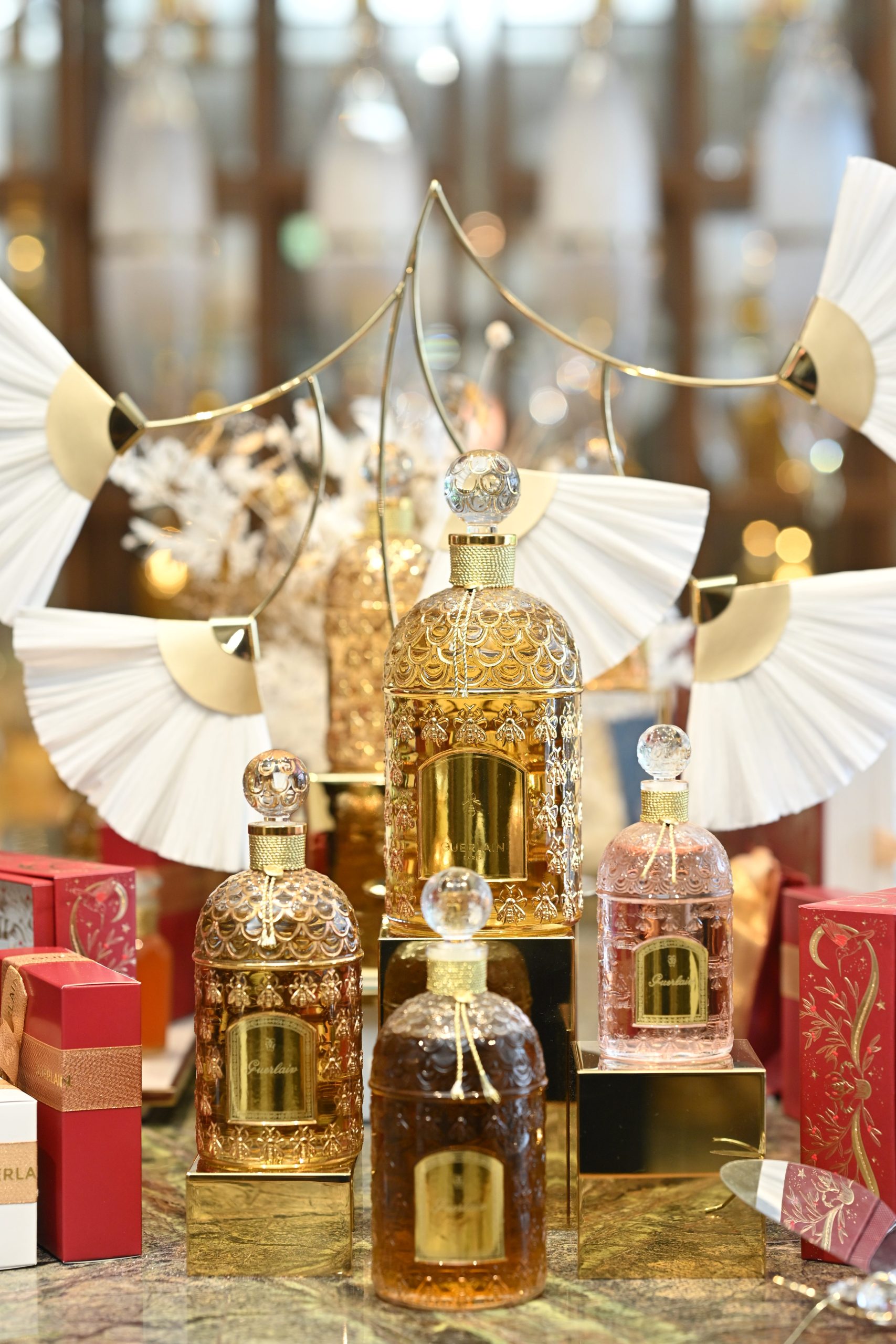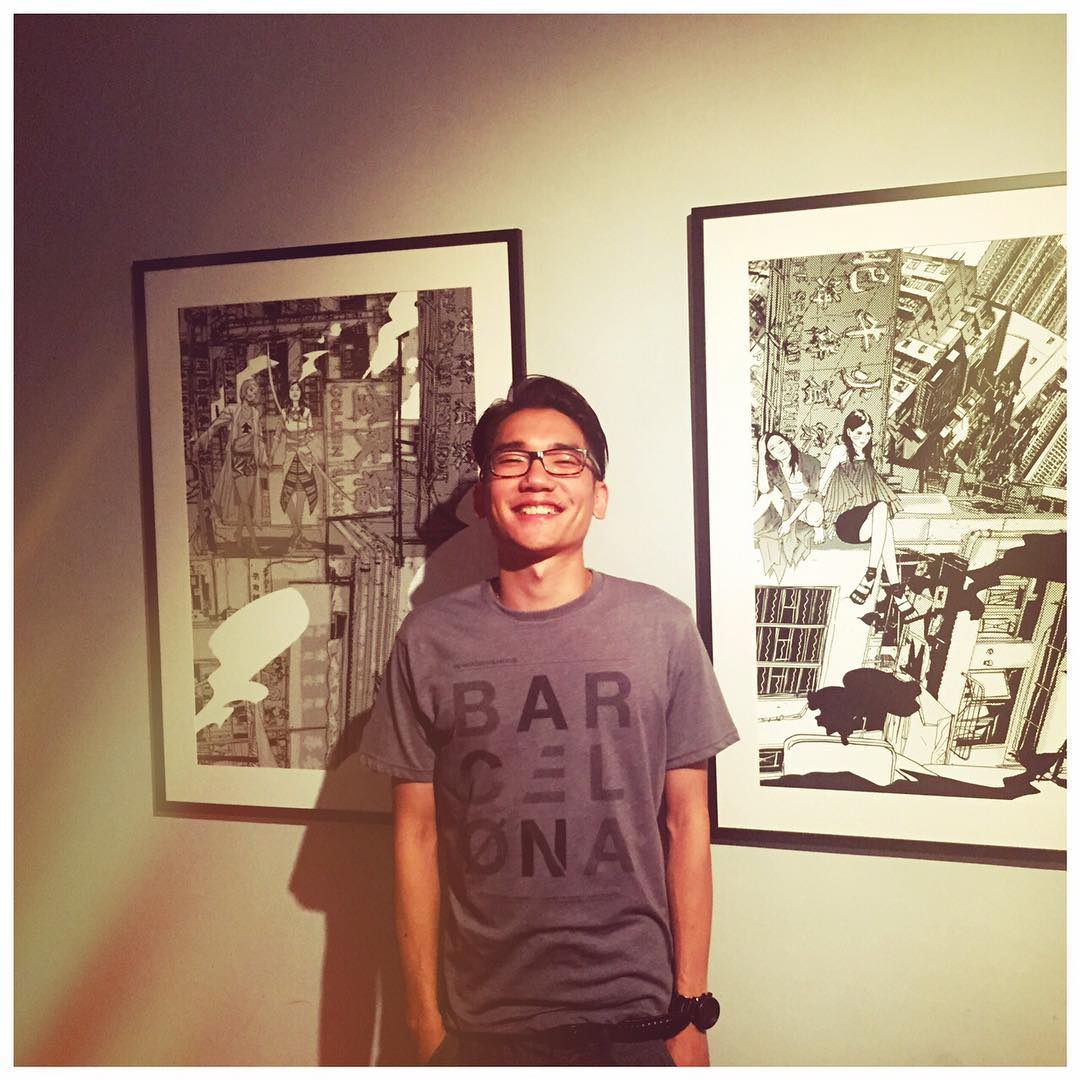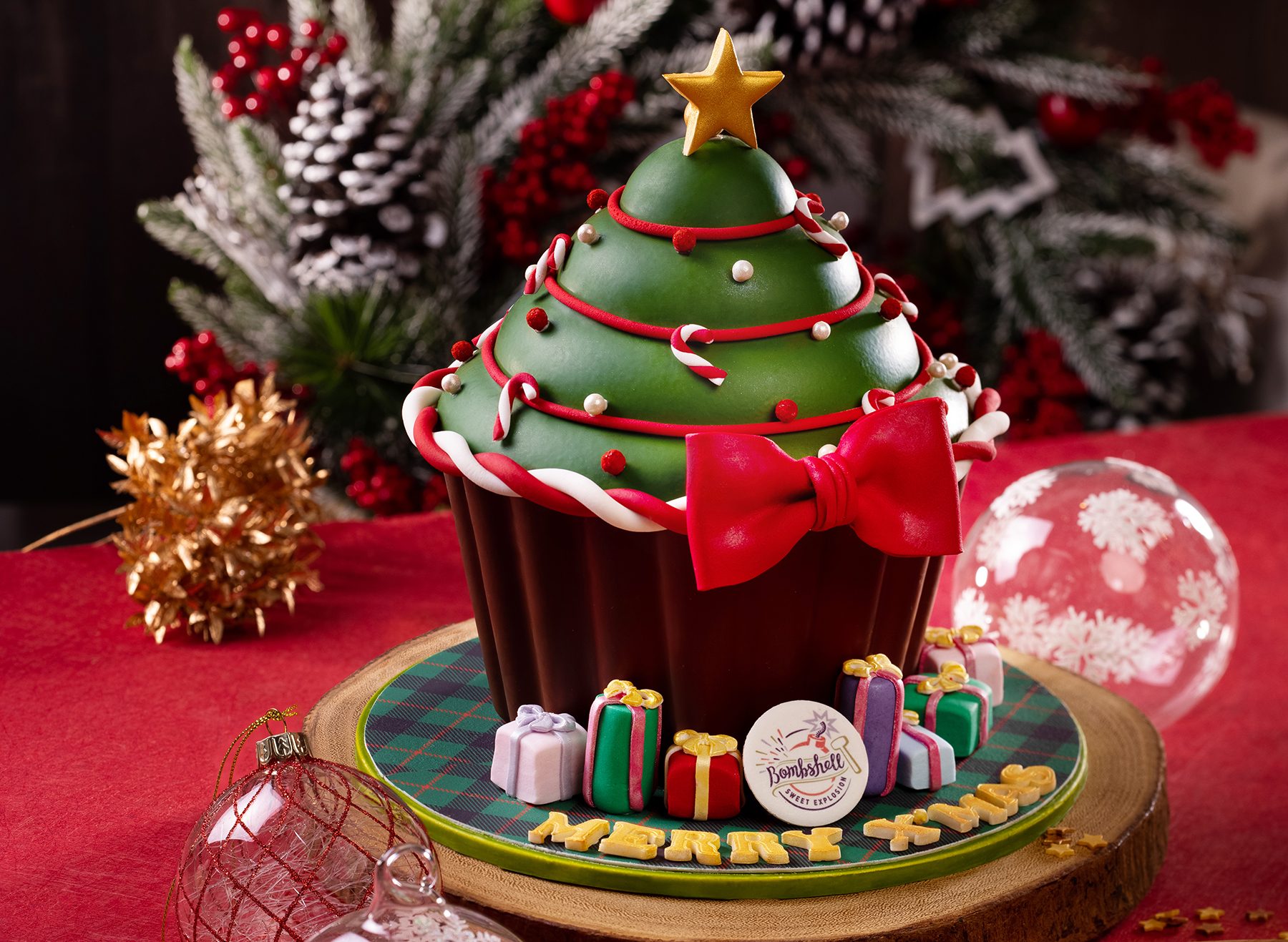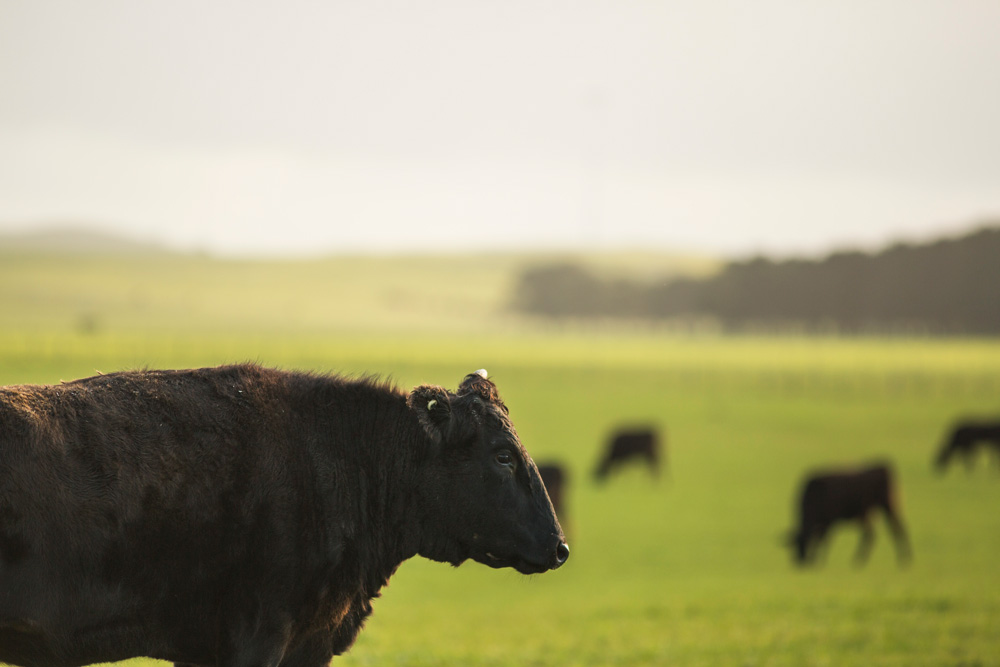
On the fertile hills of southern Australia, above the rich soil of the Limestone Coast, one family-run farm is redefining the way the world’s most discerning customers eat Wagyu. Established in 1845, Mayura Station is one of Australia’s oldest and most respected pastoral operations, and one of the first in the world to import full-blooded Wagyu cattle from Japan. That was in 1997. Today the boutique station is home to over 7,000 of the purest cattle blood-lines in the world.
Hundreds of miles away from the city, the 3000-hectare facility has clean air and a vast supply of fresh water, allowing them to grow the majority of the free-range cattle’s diet in a sustainable way. The rest comes from Cadburys, in 10-tonne weekly deliveries.
“You always need to be able to have your own identity,” explains Scott De Bruin, Managing Partner at Mayura Station, when asked about the unconventional diet, “We’re not producing Japanese-style Wagyu, we’re producing Mayura style Wagyu. We wanted something that tasted different, that had its own unique flavour, something that people could taste and say, that’s Mayura.”
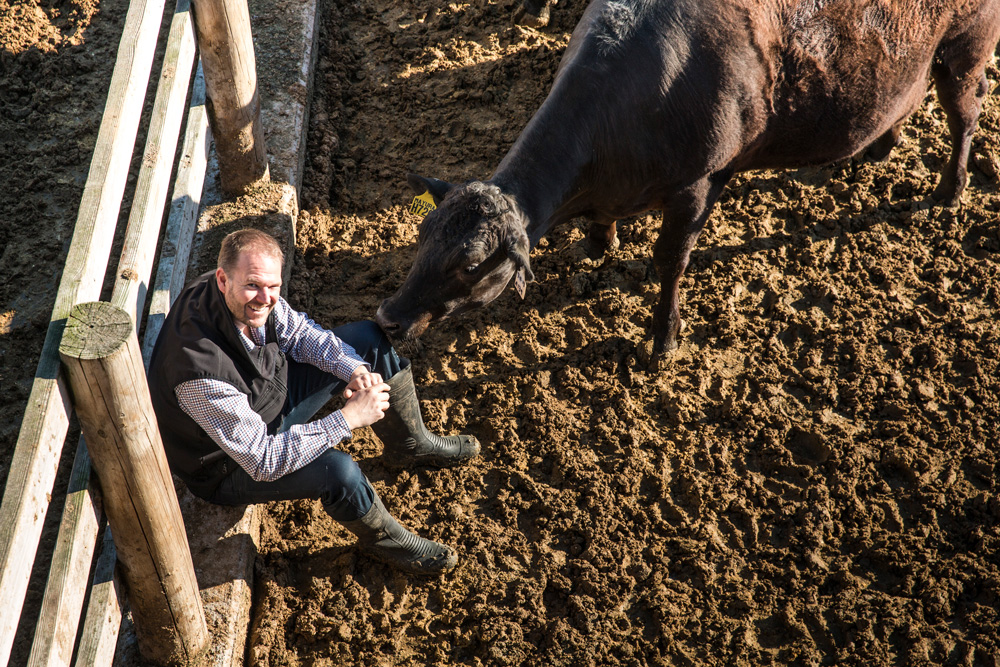
Chocolate was the answer. De Bruin developed the innovative feeding programme after analysing the composition of the Japanese feed. Being so isolated, the station didn’t have access to all of the ingredients needed for the optimal diet, so he got resourceful and developed his own blend featuring the rich English chocolate. It was pure necessity, the fact that it revolutionised the flavour was just a happy, delicious coincidence.
“We did stop using chocolate in the cow’s diets once,” he says, to test out the effectiveness. The results were immediate: both the marbling and the colour improved, but the taste vanished. “People noticed the difference and we started getting phone calls, so we reverted right away.”
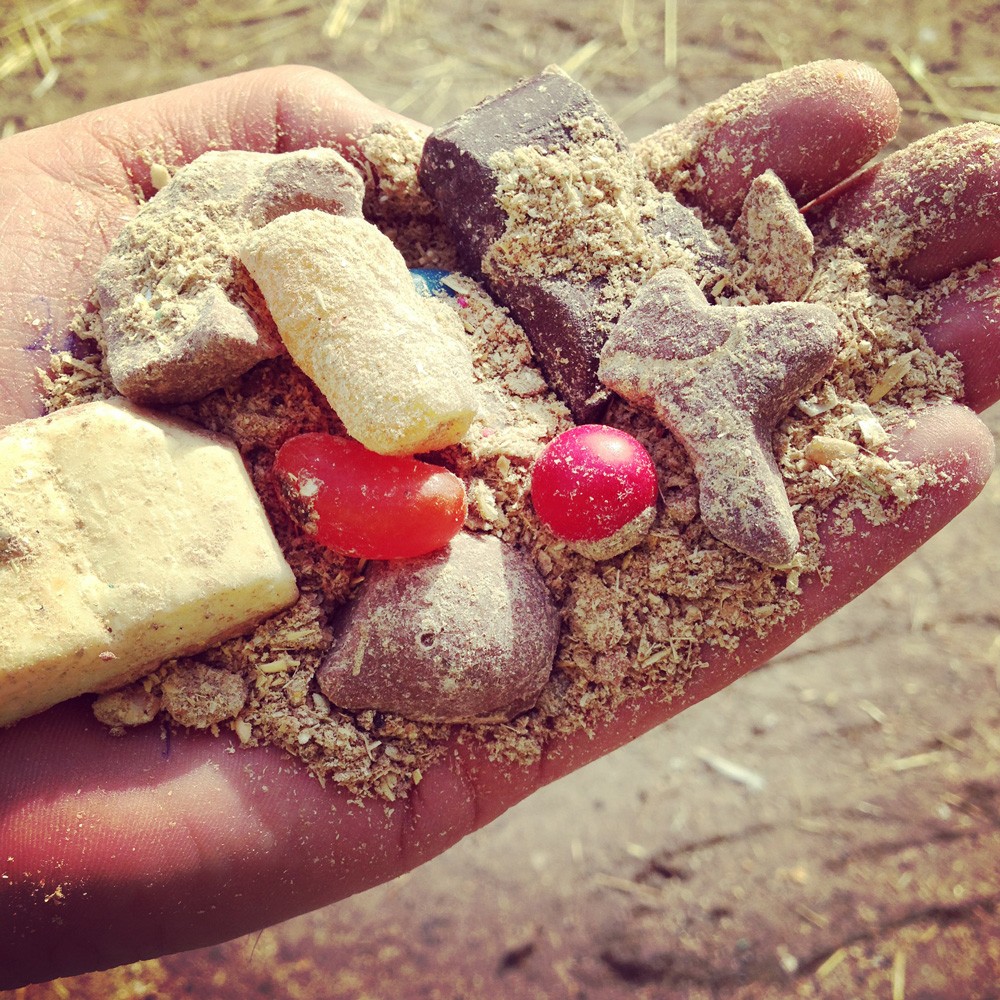
If you’re imagining foie-gras style force feeding, don’t. The cows at Mayura station have just one bad day – the rest of their lives, they spend free-roaming or in the luxe Mayura Moo Cow Motel, a five-star barn designed for ultimate animal comfort. It’s here the cows live out their final months, feasting on sweets and living in the lap of luxury. “Once they’re between 12 and 18 months, they’re moved into the Moo Cow Motel, and that’s when they start getting the chocolate. A small ratio to start with, and then we increase it for the last four or five months to have a stronger influence on the flavour,” De Bruin explains.
There have been no adverse effects to this feeding regimen, and their products remain entirely natural with no additional hormones or antibiotics pumped in. Unless, of course, the animal is sick. But on Mayura Station, the quality of life is so high that infections rarely happen, perhaps on two head of cattle a year, out of 7,000.
It may seem counterintuitive for a cattle farm, but cow welfare is at the heart of Mayura Station’s ethos. De Bruin has found that a happy cow is a tasty cow, and he reaffirms that his cattle have just one bad day. “Low stress handling is very important to us, and most of our handling facilities are based off of the work of Temple Grandin, an autistic lady from America. She’s a world-wide expert on how to handle livestock, and all of our yards are based on her design principles.” Respect for the animals is an integral part of the process at Mayura Station, which handles every element of their meat production, from growing the grains and breeding, to controlling the feeding and overseeing the butchery process.
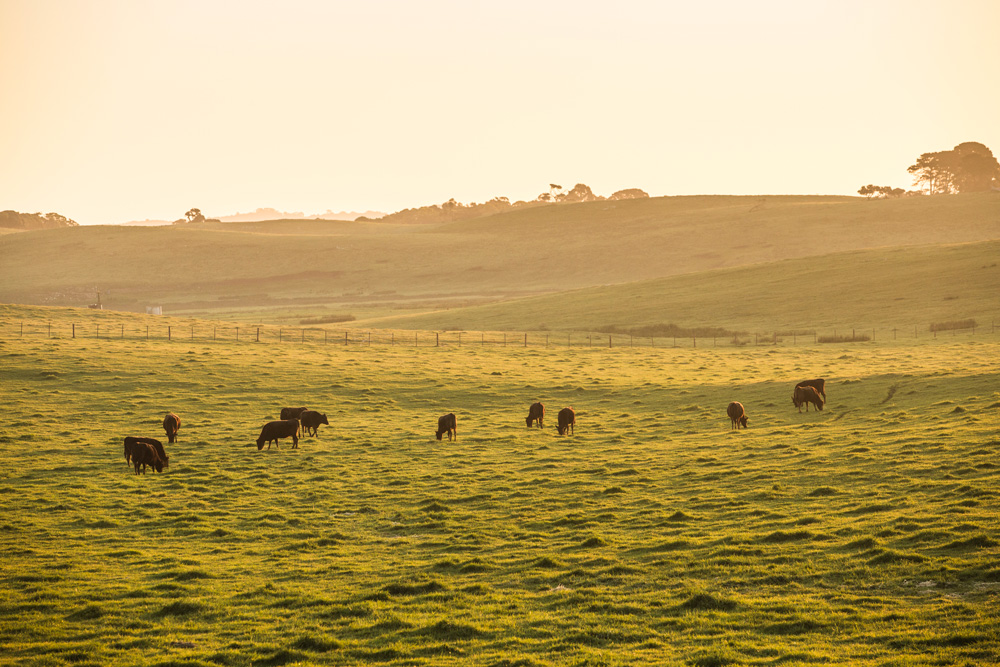 Mayura has a limited-production, to ensure the highest quality beef, and that means it’s hard for restaurants to get a hold of. “The vetting process isn’t like signing up for a membership,” says Jason Lo of Waves Pacific, Hong Kong’s premier food distributor. “But we want it well represented, so we try to control who can buy it. People who will appreciate your product are the ones who will buy it,” he says, referring to the many chefs who get caught up in the technicalities of marble scoring, without understanding the true value of the product. “This isn’t Japanese Wagyu, Mayura has developed its own taste and character, and that’s independent of the marbling. The fat is just a conduit for the flavour, not the whole thing.”
Mayura has a limited-production, to ensure the highest quality beef, and that means it’s hard for restaurants to get a hold of. “The vetting process isn’t like signing up for a membership,” says Jason Lo of Waves Pacific, Hong Kong’s premier food distributor. “But we want it well represented, so we try to control who can buy it. People who will appreciate your product are the ones who will buy it,” he says, referring to the many chefs who get caught up in the technicalities of marble scoring, without understanding the true value of the product. “This isn’t Japanese Wagyu, Mayura has developed its own taste and character, and that’s independent of the marbling. The fat is just a conduit for the flavour, not the whole thing.”
The exclusive product is sold at only a handful of the city’s top restaurants, including Arcane, The Four Seasons, Serge et le Phoque, Le Garçon Saigon, Ciak and Otto e Mezzo Bombana. If, however, you find yourself near the Limestone Coast, you can always stop by the farm for a ‘paddock to plate’ experience at The Tasting Room, Mayura Station’s own award-winning restaurant.


